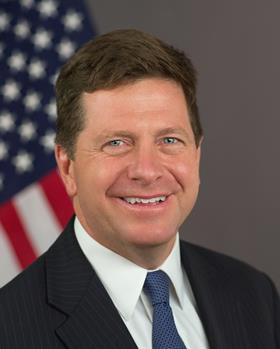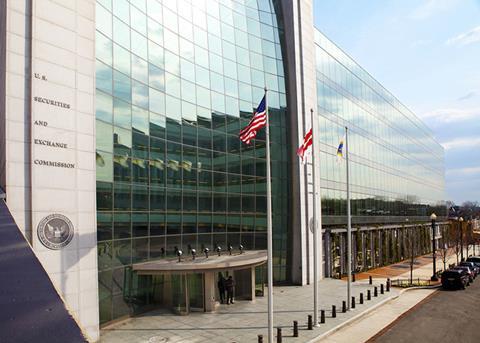The Principles for Responsible Investment (PRI) has raised the alarm: the shareholder voting process is threatened in the US.
It issued the warning in a briefing on a roundtable discussion taking place tomorrow, Thursday, at the headquarters of the Securities and Exchange Commission (SEC) in Washington, DC.
After opening statements from the regulator, the event will unfold across three panels.
Investors, issuers, lawyers, proxy advisers, and other market participants will discuss the mechanics of proxy voting and the use of technology in the voting process, shareholder engagement through the shareholder proposal process, and the role of proxy advisory firms.
Announcing the roundtable in July, SEC chairman Jay Clayton said many changes had taken place since the regulator last consulted on the US proxy system in 2010, and that the event would focus on whether the SEC’s proxy rules should be refined.

He asked those developing the roundtable agenda to consider topics such as:
- “Empty voting” and the potential for broker-dealers to vote more or fewer shares than authorised, and possible remedies;
- Whether a relatively low degree of share voting by retail investors should be “of concern and should inform analysis of existing regulation”;
- The appropriateness of minimum ownership thresholds for submitting shareholder proposals and rules permitting companies to omit resubmitted proposals; and
- Potentially excessive and harmful reliance on proxy advisory firms by investors.
According to the PRI, although the outcome of the roundtable was uncertain, regulatory changes were likely.
“SEC chair Jay Clayton has publicly stated his support of changes to the proxy voting process,” it noted in its briefing, which was aimed at supporting PRI signatories in submitting comment letters to the SEC in advance of the roundtable.
The proxy debate
Heated debate about proxy advisory firms and shareholder resolutions is not new in the US, but the context has changed.
For one, shareholders have come under increasing pressure to use their ‘voice’, and many have been stepping up engagement with companies.
According to non-profit environmental investment research provider CDP, over the past five years more than twice as many climate-related resolutions have been filed at oil and gas companies than in the preceding five years, and votes for shareholder resolutions relating to 2°C scenario analysis more than doubled between 2014 and 2018.
And then there has been the emergence in recent months of a new front against proxy advisers and shareholder activism, or active ownership.
Launched in May by former White House special adviser David Banks, the Main Street Investor Coalition (MSIC) has been mounting a challenge to what it refers to as institutional investors “playing politics with other people’s money”.
The group comprises several organisations, including the National Association of Manufacturers (NAM) and the American Council for Capital Formation.
In a statement announcing its launch, the coalition said the focus of shareholder proposals at annual general meetings had shifted “from improving business performance and financial returns, to advancing social or political causes”.
“Unfortunately,” it added, “the vast majority of retail investors have no ability to influence what’s being done supposedly on their behalf – or even know that it is happening.”

ESG investing under threat?
The coalition has caused quite a ruckus.
The PRI has suggested the group was behind “an effort to weaken ESG investing”. The global head of sustainable investing at Morningstar has described it as an “absolute swamp creature”. The CEO of sustainability advocacy organisation Ceres has criticised it for being false and wrong, and influential corporate governance specialists have also strongly criticised the organisation.
“MSIC uses inflammatory language, unsupported assertions, and out-and-out falsehoods to try to discredit the institutional investors who file and support non-binding shareholder proposals,” wrote Nell Minow, vice-chair of ValueEdge Advisors, shortly after the coalition’s launch.
In addition, in the summer, two big US pension funds – CalSTRS and the New York Common Retirement fund – joined forces with Walden Asset Management to write to company executives sitting on the executive committee of the NAM, asking them to question its partnership with the coalition.
While the MSIC’s stated mission to bring a voice to retail investors was laudable, the investors wrote, its underlying assumption was “deeply flawed”.
“The MSIC perpetuates the myth that incorporating environmental, social and governance factors inherently conflicts with protecting and advancing shareholder value,” the investors said.
Investor support for shareholder proposals was growing both at the retail and institutional level, and generally this was because “the business case behind the resolution is clear and convincing”, they wrote.
In a comment to the SEC ahead of Thursday’s roundtable, Walden’s Tim Smith, director of ESG shareowner engagement, said it was “timely and relevant to respond to erroneous campaigns” by NAM and other industry groups.
This, it would seem, is one to watch.

















